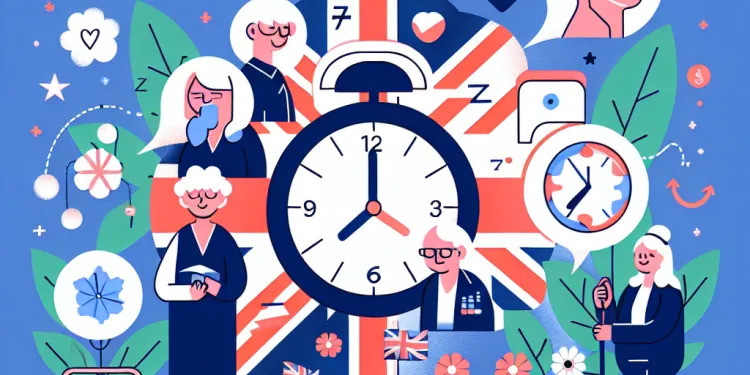
Find Help
More Items From Ergsy search
-
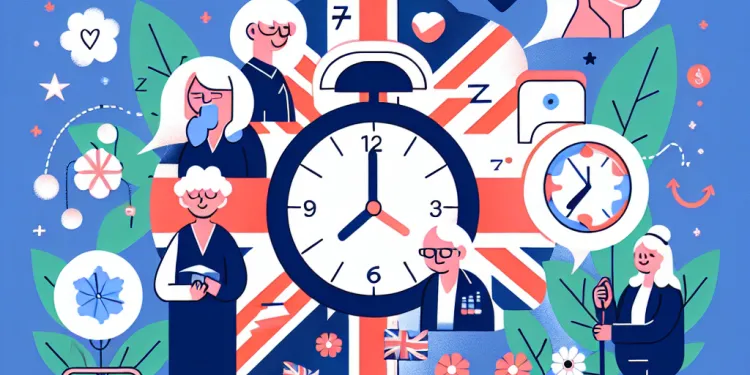
The Importance of Sleep for All Ages
Relevance: 100%
-

Why is fiber important for gut health and aging?
Relevance: 54%
-
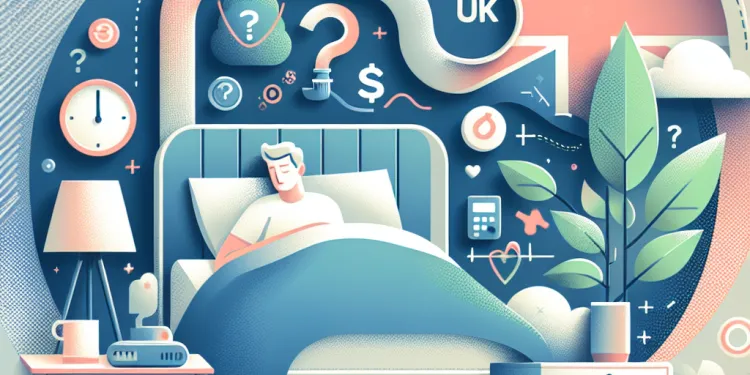
How common is sleep apnea?
Relevance: 51%
-

What are risk factors for developing sleep apnea?
Relevance: 47%
-

Does sleep apnea occur only in adults?
Relevance: 47%
-

Are baby sleep pillows safe?
Relevance: 46%
-

What is sleep apnoea?
Relevance: 46%
-

What is sleep apnea?
Relevance: 46%
-
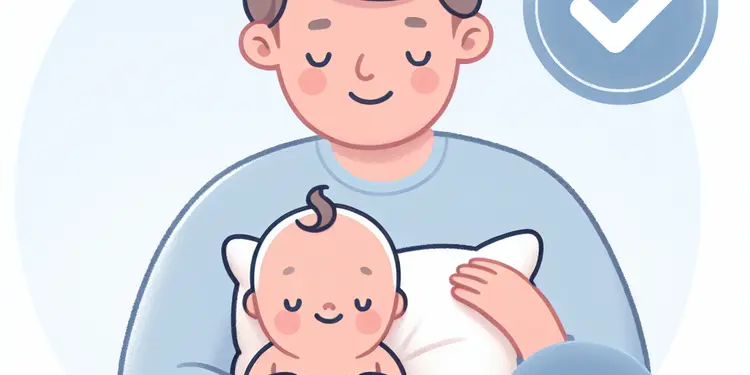
At what age is it safe for a baby to use a pillow?
Relevance: 45%
-

Does screen time affect both sleep onset and sleep maintenance?
Relevance: 45%
-

Why is sleep apnea dangerous?
Relevance: 44%
-
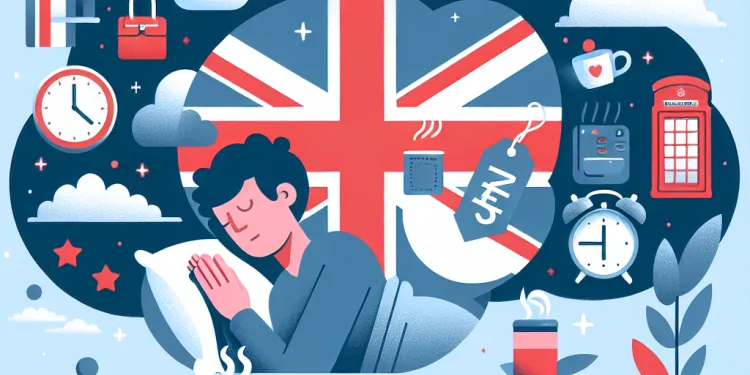
What are common symptoms of sleep apnea?
Relevance: 44%
-

What do pediatricians recommend about baby sleep pillows?
Relevance: 44%
-

What are the main types of sleep apnea?
Relevance: 44%
-
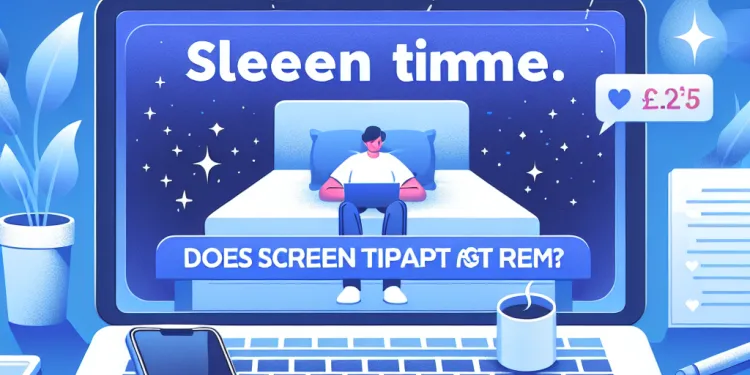
Does screen time impact REM sleep?
Relevance: 44%
-

What should I do if my baby has a preference for sleeping with a pillow?
Relevance: 44%
-

Is health linked to aging?
Relevance: 44%
-

Can children have sleep apnea?
Relevance: 44%
-

What causes obstructive sleep apnea?
Relevance: 44%
-

How is sleep apnea diagnosed?
Relevance: 43%
-

Can sleep apnea be cured?
Relevance: 43%
-
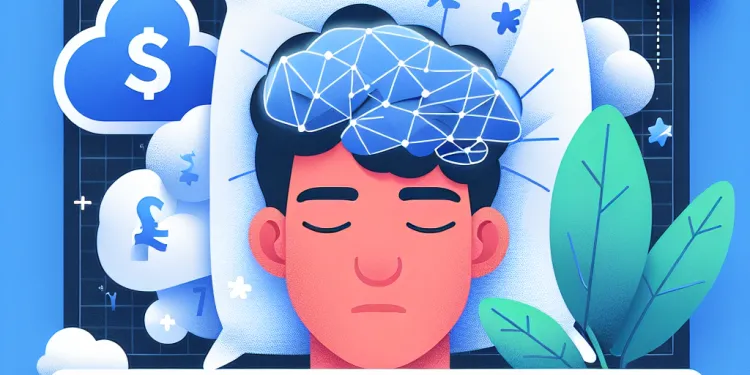
Is it safe to sleep after a concussion?
Relevance: 43%
-
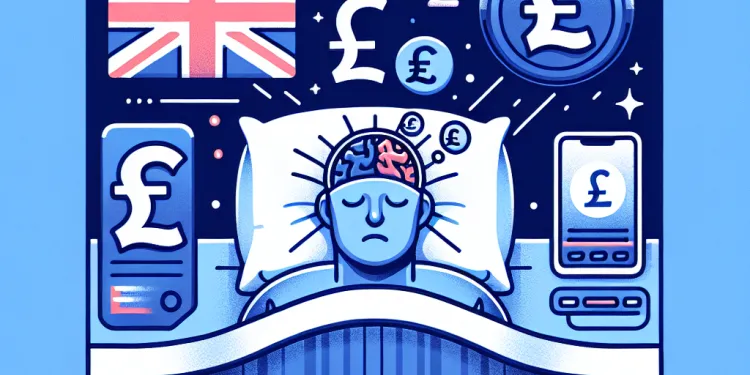
Is it safe to sleep after a concussion?
Relevance: 42%
-

Are there any benefits to using baby sleep pillows?
Relevance: 42%
-

Can reducing screen time improve sleep quality?
Relevance: 42%
-
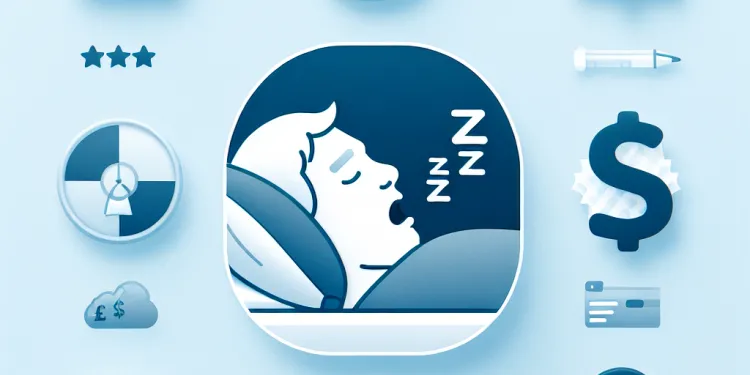
Is snoring always a sign of sleep apnea?
Relevance: 42%
-
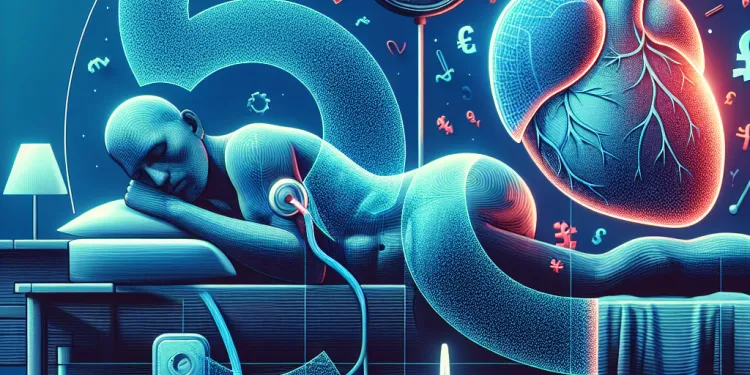
What is complex sleep apnea syndrome?
Relevance: 42%
-

Is it okay to use a baby sleep positioner?
Relevance: 41%
-
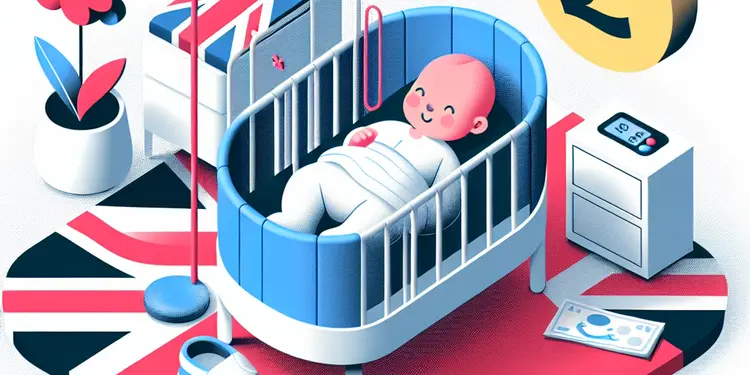
What is the safest sleep environment for an infant?
Relevance: 41%
-

What treatments are available for sleep apnea?
Relevance: 41%
-

What is complex sleep apnea syndrome?
Relevance: 41%
-

What are the risks associated with baby sleep pillows?
Relevance: 41%
-

Why are baby sleep pillows not safe for infants?
Relevance: 41%
-

How does inflammation affect aging and gut health?
Relevance: 41%
-

Are there any screen time guidelines recommended for improving sleep?
Relevance: 41%
-
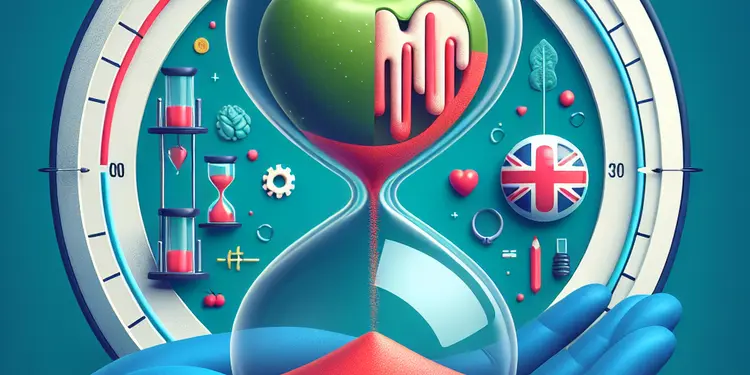
Can maintaining a healthy gut help slow down aging?
Relevance: 41%
-
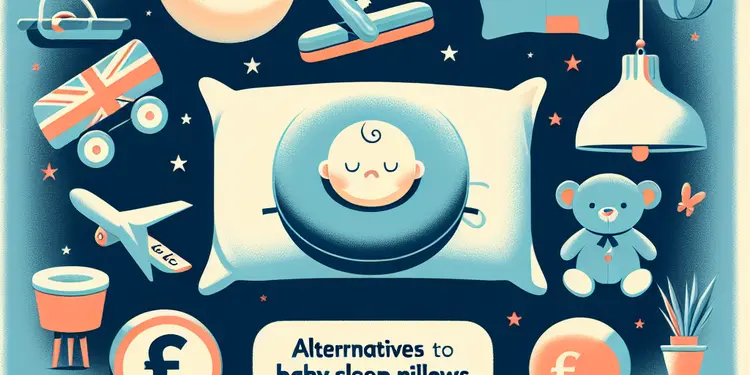
What alternatives to baby sleep pillows are considered safe?
Relevance: 40%
-
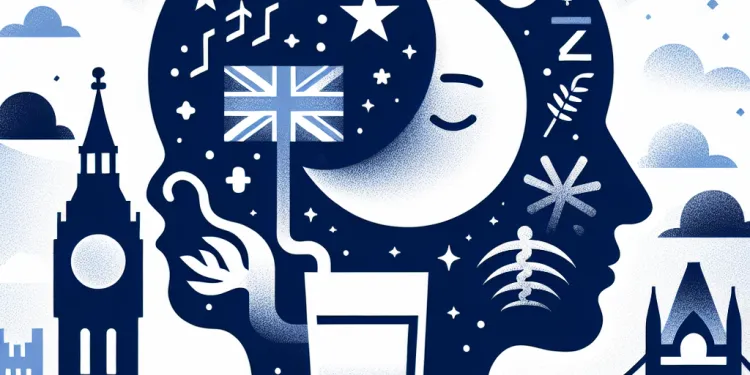
Can alcohol worsen sleep apnea?
Relevance: 40%
-

What demographic showed the most significant change in sleep quality due to screen time?
Relevance: 40%
-

Is CPAP the only treatment for sleep apnea?
Relevance: 40%
The Importance of Sleep for All Ages
Introduction
Sleep is a fundamental aspect of human health and well-being that impacts people across all age groups. In the United Kingdom, there is a growing awareness of the critical role that sleep plays in overall health, productivity, and quality of life. Understanding the specific needs and benefits of sleep at different stages of life can help individuals make informed decisions and adopt healthier sleep habits.
Sleep in Childhood
For children, sleep is crucial for growth and development. It is during these early years that the brain is most active in processing information, consolidating memories, and supporting physical growth. Adequate sleep helps improve attention, behaviour, learning, and emotional regulation. A lack of sleep in children can lead to issues such as hyperactivity, concentration problems, and a weakened immune system. The NHS recommends that children aged 3-5 years get 10-13 hours of sleep per night, while those aged 6-12 years should aim for 9-12 hours.
Teenage Sleep Needs
Adolescence is a period of significant change, and sleep continues to play a vital role. Teenagers need about 8-10 hours of sleep per night to support their rapid physical, emotional, and cognitive development. However, many teenagers in the UK experience a sleep deficit due to academic pressures, social activities, and the pervasive use of electronic devices. Insufficient sleep in this age group can result in mood swings, lower academic performance, and an increased risk of mental health issues like depression and anxiety.
Adult Sleep Importance
Adults require about 7-9 hours of sleep per night to maintain optimal health and functioning. Quality sleep helps adults manage stress, maintain cognitive function, and support immune health. Chronic sleep deprivation in adults is associated with a range of health problems, including cardiovascular disease, diabetes, obesity, and impaired mental health. Establishing a consistent sleep routine and creating a conducive sleep environment are key strategies for improving sleep quality in adults.
Sleep in Older Adults
As people age, sleep patterns often change, with many older adults experiencing lighter sleep, frequent awakenings, and earlier waking times. Despite these changes, sufficient sleep remains essential for maintaining physical health, cognitive function, and emotional well-being. Older adults should aim for 7-8 hours of sleep per night. Addressing factors such as pain, medication side effects, and sleep disorders can help improve sleep quality in this age group.
Conclusion
The significance of sleep cannot be overstated, regardless of age. From childhood through to older adulthood, prioritising sleep is a key component of a healthy lifestyle. In the United Kingdom, promoting good sleep hygiene and raising awareness about the importance of sleep can contribute to better health outcomes for the population. By fostering a culture that values rest and recovery, individuals can enhance their well-being and quality of life.
The Importance of Sleep for All Ages
Introduction
Sleep is very important for everyone. It helps us stay healthy and feel good. In the UK, people are learning more about how sleep affects our health and how we do things every day. Knowing how much sleep we need at different ages can help us sleep better and feel better.
Sleep in Childhood
Kids need sleep to grow and learn. When kids sleep well, their brains can remember and learn new things. Sleep also helps them behave well and feel good. If kids don’t get enough sleep, they might be too active or have trouble paying attention. The NHS says kids aged 3-5 should sleep 10-13 hours each night. Kids aged 6-12 should sleep 9-12 hours each night.
Teenage Sleep Needs
Teenagers go through a lot of changes. They need 8-10 hours of sleep each night to help their bodies and brains grow. But many teens in the UK don’t get enough sleep. This can be because of school, friends, and using phones or computers too much. Not sleeping enough can make teens feel moody and find it harder to do well in school.
Adult Sleep Importance
Grown-ups need 7-9 hours of sleep each night to stay healthy. Good sleep helps them handle stress and stay smart. Not getting enough sleep can cause health problems like heart disease and diabetes. Adults should try to go to bed and wake up at the same time every day. Making sure their bedroom is comfy can also help them sleep better.
Sleep in Older Adults
As people get older, their sleep might get lighter, and they might wake up more during the night. Even so, getting enough sleep is still very important. Older people should aim for 7-8 hours of sleep each night. Fixing problems like pain or sleep disorders can help them sleep better.
Conclusion
Sleep is important for everyone, no matter how old they are. From when we are little kids to when we are older, getting enough sleep is a big part of staying healthy. In the UK, teaching people about how to get good sleep can help everyone feel better and live happier lives. By making sleep a priority, we can all improve our health.
Frequently Asked Questions
Why is sleep important for all ages?
Sleep is crucial for physical health, mental wellbeing, and overall quality of life. It supports cognitive function, emotional regulation, and plays a pivotal role in physical recovery and immune system efficiency.
How many hours of sleep do adults need?
Adults generally need 7-9 hours of sleep per night for optimal health and functioning.
What are the recommended sleep hours for teenagers?
Teenagers typically require 8-10 hours of sleep each night to support their rapid physical and mental development.
Why do infants need more sleep than adults?
Infants require 12-16 hours of sleep per day because sleep is essential for their growth, brain development, and the consolidation of new information.
What are the consequences of sleep deprivation?
Sleep deprivation can lead to a range of problems including impaired cognitive function, increased risk of chronic conditions like diabetes and heart disease, mood disturbances, and weakened immune response.
Can poor sleep affect mental health?
Yes, poor sleep is strongly linked with mental health issues such as depression, anxiety, and stress. Quality sleep is essential for maintaining mental balance and emotional health.
How does sleep affect children’s academic performance?
Adequate sleep significantly boosts academic performance in children. It enhances memory, attention, problem-solving skills, and overall cognitive function, leading to better school performance.
Is it normal for older adults to sleep less?
While it's common for sleep patterns to change with age, older adults still need about 7-8 hours of sleep. However, they may experience more fragmented sleep and find themselves waking earlier.
What are some tips for improving sleep quality?
To improve sleep quality, maintain a regular sleep schedule, create a comfortable sleep environment, limit exposure to screens before bed, avoid caffeine and heavy meals in the evening, and practice relaxation techniques.
How does diet impact sleep?
Diet plays a role in sleep quality. Consuming a balanced diet rich in fruits, vegetables, proteins, and whole grains can promote better sleep, while high sugar and fatty foods can disrupt it.
What is the impact of exercise on sleep?
Regular physical activity can greatly improve sleep quality by reducing stress and anxiety, helping to fall asleep faster, and increasing the amount of deep sleep.
Can naps compensate for poor nighttime sleep?
While short naps can improve mood and alertness, they cannot fully compensate for poor nighttime sleep. It's best to address the underlying issues affecting nighttime sleep.
What role does technology play in sleep disturbances?
Exposure to screens before bedtime can interfere with sleep by suppressing melatonin production, making it harder to fall asleep. It's recommended to limit screen time in the hour leading up to bed.
How can parents establish good sleep habits for children?
Parents can establish good sleep habits by setting a consistent bedtime routine, ensuring a conducive sleep environment, limiting screen time before bed, and encouraging regular physical activity.
Are there any medical conditions that can affect sleep?
Yes, conditions such as sleep apnea, insomnia, restless leg syndrome, and chronic pain can affect sleep quality. It’s important to seek medical advice if sleep problems persist.
Why is sleep important for everyone?
Sleep helps our bodies and brains rest.
It makes us feel better and gives us energy.
Kids need sleep to grow and learn well. Adults need it to stay healthy and focused.
Tips to help you sleep better:
- Go to bed at the same time every night.
- Make your room quiet and dark.
- Avoid screens before bed.
- Read a book or listen to calm music.
Sleep is very important for our health and happiness. It helps us think better, feel better, and stay healthy. Sleep helps our brain work, keeps our feelings steady, and helps our body get strong and fight off sickness.
How much sleep do grown-ups need?
Grown-ups need to sleep for about 7 to 9 hours each night. This helps them stay healthy and work well during the day.
How much sleep do teenagers need?
Teenagers should sleep for 8 to 10 hours every night.
Getting enough sleep helps you feel good and stay healthy.
Try to go to bed and wake up at the same time every day. This helps your body get used to a routine.
If you have trouble sleeping, try reading a book or listening to calm music.
Ask a parent or teacher if you need more help with sleep.
Teenagers need 8-10 hours of sleep every night. This helps their bodies and brains grow well.
Why do babies need more sleep than grown-ups?
Babies sleep a lot because it helps them grow. Sleep is important for their body and brain to get bigger and stronger.
While they sleep, their brain is busy learning new things and remembering them.
Babies also get tired quickly because their bodies are small and need rest after playing and eating.
To help a baby sleep better, you can:
- Keep a quiet and calm place for them to sleep.
- Make a bedtime routine, like reading a story or singing a song.
- Ensure they are not too hot or cold.
- Use a night-light if they are afraid of the dark.
Babies need to sleep for 12-16 hours each day. Sleep helps them grow. It also helps their brains get bigger and remember new things.
What happens if we don't get enough sleep?
Not sleeping enough can cause a lot of problems. It can make it hard to think clearly. It can also make you feel sad or grumpy. Not sleeping well can make you more likely to get sick. It can also make it easier to get diseases like diabetes and heart problems.
Does bad sleep make you feel sad or worried?
If you don't sleep well, it can make you feel sad or worried. It's important to get good sleep to feel happy and calm. If you have trouble sleeping, try these tips:
- Go to bed at the same time every night.
- Keep your room dark and quiet.
- Don't watch TV or use phones before bed.
- Relax by reading a book or listening to calm music.
If you still have trouble sleeping, ask a grown-up for help.
Yes, not getting enough sleep can make you feel sad, worried, or stressed. Good sleep helps you feel happy and healthy.
How does sleep help children do well in school?
Sleep is important for kids to learn and focus in school. When kids get enough sleep, they can remember things better and solve problems easily.
If kids don’t get enough sleep, they might feel tired and have trouble paying attention in class. This can make it harder to do well in school.
Try to help kids go to bed at the same time every night. A quiet bedtime routine can help them fall asleep faster.
Some good tools to use are calming music or bedtime stories.
Getting enough sleep helps kids do their best in school!
Getting enough sleep helps kids do better in school. It makes their memory, attention, and problem-solving skills better. This means they can learn and think more clearly.
Do older people sleep less? Is that okay?
As people get older, they might not sleep as much. This can be normal. If you're worried, talk to a doctor.
Here are some tips that might help with sleep:
- Try to go to bed and wake up at the same time every day.
- Make your bedroom quiet and comfy.
- Avoid using screens like phones or tablets before bed.
- Relax before going to sleep, like by reading a nice book.
Talking to someone about sleep can help too. You can ask family, friends, or a doctor for advice.
As people get older, their sleep can change. Older people still need about 7 to 8 hours of sleep. But, they might wake up more during the night and wake up earlier in the morning.
How can I sleep better?
Here are some easy ideas to help you sleep well: - Go to bed and wake up at the same time every day. This helps your body learn a sleeping routine. - Make your bedroom dark, cool, and quiet. This makes it easier to sleep. - Do something calm before bed, like reading a book. This helps your body relax. - Turn off screens like TVs, phones, and tablets an hour before bed. This helps your eyes rest. - Exercise during the day. It helps your body feel tired and ready for sleep. - Avoid drinking soda, coffee, or tea in the evening. The caffeine can keep you awake. If you need help, try using a white noise machine or a sleep mask to help you rest.Here are some tips to help you sleep better:
- Go to bed and wake up at the same time every day: Try to keep the same bedtime even on weekends.
- Make your bedroom comfy: Keep it dark, quiet, and cool. Use a cozy pillow and blanket.
- Stay away from screens before bed: Don't use phones, tablets, or TV at least an hour before sleeping.
- Avoid coffee and big meals at night: These can keep you awake. Try to have dinner a few hours before bedtime.
- Relax before bed: Do something calming like deep breathing, reading a book, or listening to soft music.
Tools like sleep apps or white noise machines can also help you relax and sleep better.
How does food change sleep?
The food we eat can help us sleep better or make it harder to sleep. Easy words and examples can help us understand. Eating healthy foods, like fruits, vegetables, and whole grains, can be good for sleep. Also, not eating heavy meals or a lot of sweets before bed can help. Drinking warm milk or herbal tea might make it easier to relax at night.
Tools like picture cards or storybooks about healthy food and sleep can support learning. Also, using apps that remind you to eat healthy and sleep on time might assist. Remember, good food choices can help us rest well.
What you eat can help you sleep better. Eating lots of fruits, vegetables, proteins, and whole grains is good for sleep. Eating too much sugar and fatty foods can make sleeping harder.
Here are some tips to help:
- Try to eat healthy foods every day.
- Avoid eating sugary and fatty foods, especially before bed.
- Use a bedtime routine to relax before sleeping.
How does exercise help you sleep?
Exercise can help you sleep better. It makes your body tired, which helps you fall asleep faster. Exercise can also help you sleep more deeply.
Try to exercise during the day. Don't exercise too close to bedtime, as it might make it harder to fall asleep.
If you can, go for a walk, dance, or play a sport. Even small movements can help you sleep better.
Remember: Exercise is good for your health and can help you rest well at night.
Doing exercise can help you sleep better. It makes you less stressed and worried, helps you fall asleep faster, and gives you more deep sleep.
Can naps make up for not sleeping well at night?
Short naps can help you feel better and more awake. But they can't make up for not sleeping well at night. It's important to find out why you're not sleeping well at night and fix that problem.
How does technology affect sleep problems?
Looking at screens, like phones or tablets, before bedtime can make it hard to sleep. This is because it stops a brain chemical called melatonin, which helps us sleep. Try to stop using screens an hour before you go to bed.
How can parents help children sleep well?
Here are some tips to help children get good sleep:
- Make a bedtime routine. Do the same things every night before bed, like brushing teeth and reading a story.
- Go to bed at the same time every night. This helps the body get used to sleeping at that time.
- Make the bedroom quiet and dark. This helps the child feel calm and ready to sleep.
- Limit screen time before bed. Try not to use phones, tablets, or watch TV right before sleeping.
- Encourage relaxing activities. Things like taking a warm bath or listening to calm music can help relax.
Parents can also use tools like bedtime stories or apps with calming sounds to help children relax.
Parents can help kids sleep better by doing these things:
- Have the same bedtime every night.
- Make sure the bedroom is quiet and comfortable.
- Turn off screens like tablets and phones before bed.
- Help kids play and exercise during the day.
Do some health problems make it hard to sleep?
Yes, some health problems can make it hard to sleep well. These problems can be:
- Trouble breathing when you sleep (sleep apnea)
- Not being able to sleep (insomnia)
- Legs moving a lot when you try to sleep (restless leg syndrome)
- Hurting that doesn’t go away (chronic pain)
If you keep having trouble sleeping, it is important to talk to a doctor. They can help you find out what to do.
Using things like a calm bedtime routine or relaxing music can also help you sleep better.
Useful Links
This website offers general information and is not a substitute for professional advice.
Always seek guidance from qualified professionals.
If you have any medical concerns or need urgent help, contact a healthcare professional or emergency services immediately.
Some of this content was generated with AI assistance. We’ve done our best to keep it accurate, helpful, and human-friendly.
- Ergsy carfully checks the information in the videos we provide here.
- Videos shown by Youtube after a video has completed, have NOT been reviewed by ERGSY.
- To view, click the arrow in centre of video.
- Most of the videos you find here will have subtitles and/or closed captions available.
- You may need to turn these on, and choose your preferred language.
- Go to the video you'd like to watch.
- If closed captions (CC) are available, settings will be visible on the bottom right of the video player.
- To turn on Captions, click settings .
- To turn off Captions, click settings again.
More Items From Ergsy search
-

The Importance of Sleep for All Ages
Relevance: 100%
-

Why is fiber important for gut health and aging?
Relevance: 54%
-

How common is sleep apnea?
Relevance: 51%
-

What are risk factors for developing sleep apnea?
Relevance: 47%
-

Does sleep apnea occur only in adults?
Relevance: 47%
-

Are baby sleep pillows safe?
Relevance: 46%
-

What is sleep apnoea?
Relevance: 46%
-

What is sleep apnea?
Relevance: 46%
-

At what age is it safe for a baby to use a pillow?
Relevance: 45%
-

Does screen time affect both sleep onset and sleep maintenance?
Relevance: 45%
-

Why is sleep apnea dangerous?
Relevance: 44%
-

What are common symptoms of sleep apnea?
Relevance: 44%
-

What do pediatricians recommend about baby sleep pillows?
Relevance: 44%
-

What are the main types of sleep apnea?
Relevance: 44%
-

Does screen time impact REM sleep?
Relevance: 44%
-

What should I do if my baby has a preference for sleeping with a pillow?
Relevance: 44%
-

Is health linked to aging?
Relevance: 44%
-

Can children have sleep apnea?
Relevance: 44%
-

What causes obstructive sleep apnea?
Relevance: 44%
-

How is sleep apnea diagnosed?
Relevance: 43%
-

Can sleep apnea be cured?
Relevance: 43%
-

Is it safe to sleep after a concussion?
Relevance: 43%
-

Is it safe to sleep after a concussion?
Relevance: 42%
-

Are there any benefits to using baby sleep pillows?
Relevance: 42%
-

Can reducing screen time improve sleep quality?
Relevance: 42%
-

Is snoring always a sign of sleep apnea?
Relevance: 42%
-

What is complex sleep apnea syndrome?
Relevance: 42%
-

Is it okay to use a baby sleep positioner?
Relevance: 41%
-

What is the safest sleep environment for an infant?
Relevance: 41%
-

What treatments are available for sleep apnea?
Relevance: 41%
-

What is complex sleep apnea syndrome?
Relevance: 41%
-

What are the risks associated with baby sleep pillows?
Relevance: 41%
-

Why are baby sleep pillows not safe for infants?
Relevance: 41%
-

How does inflammation affect aging and gut health?
Relevance: 41%
-

Are there any screen time guidelines recommended for improving sleep?
Relevance: 41%
-

Can maintaining a healthy gut help slow down aging?
Relevance: 41%
-

What alternatives to baby sleep pillows are considered safe?
Relevance: 40%
-

Can alcohol worsen sleep apnea?
Relevance: 40%
-

What demographic showed the most significant change in sleep quality due to screen time?
Relevance: 40%
-

Is CPAP the only treatment for sleep apnea?
Relevance: 40%


